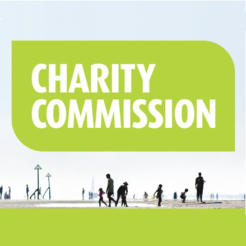The Charity Commission has not given sufficiently clear guidance on charities’ ability to campaign in the run-up to the EU referendum, a leading charity law firm has warned today.
In an opinion piece published today on civilsociety.co.uk, Simon Steeden, a partner at Bates Wells Braithwaite, says that charities need more clarity from the Commission before a referendum on whether Britain should continue to remain a member of the EU.
But the Charity Commission has said it does not accept the BWB position, saying it is an “alarmist contribution” and that most charities understand the need for balance.
The date of an EU referendum has not yet been set, but it is expected to take place in 2017. Earlier this year the two sides in the argument launched their campaigns to persuade the public.
OSCR, the Scottish Charity Regulator, set out its position on referendums before the vote on Scottish independence last year, and BWB believes there are significant differences between the positions taken by OSCR and the Commission. It has called for the Commission to change its stance and base its guidance on the OSCR position.
“The Charity Commission guidance on referendums is not sufficiently clear about the scope for charitable involvement in referendum campaigning,” Steeden says.
The Commission guidance suggests charities can set out the benefits of a ‘yes’ or ‘no’ vote, but that this is distinct from campaigning for a particular result. It suggests that charities are only likely to want to campaign in “exceptional circumstances” and should be careful of appearing party political.
“Worryingly, this guidance seems likely to discourage charities from participating in the EU referendum campaign even where the result is reasonably expected by the trustees to have substantial far-reaching consequences for achievement of the charity’s purposes,” Steeden writes. “Many trustees will be concerned by the suggestions that campaigning for a particular outcome will only be permissible in ‘exceptional’ cases and that campaigning should be avoided where there is ‘a significant party political dimension’ to the referendum.”
Steeden says OSCR produced revised guidance before the Scottish independence referendum which “endorsed the ability of charities to campaign for a yes or no vote, provided the trustees were able to demonstrate that this would advance the charity’s purposes, not be prohibited by the charity’s governing document, not be advancing a political party and be in the charity’s interest, acting with due care and diligence”.
He says charities in England and Wales “need the same assurance in relation to the EU referendum”.
“In the view of Bates Wells Braithwaite, the OSCR guidance, having been stress-tested at the sharp end of a recent and hard-fought referendum campaign, should form the basis of joint Charity Commission and OSCR guidance as an accurate reflection of the ability of charities across Britain to engage with the EU referendum,” he says.
Sarah Atkinson, director of policy and communications at the Commission, said: ““The legal framework governing charities in Scotland is separate to that in England and Wales. Some differences in our respective guidance to charities are therefore to be expected.
I simply do not accept that our guidance discourages charities from contributing appropriately to debates in the run up to referendums. Charity law in England and Wales is quite clear about the need for charities to maintain political neutrality.
“Only in very exceptional cases will it be appropriate for a charity to directly campaign for a yes or a no vote. Charities could only do this where the outcome is likely to directly affect, positively or negatively, the delivery of its charitable objects.
“But where there is a significant party political dimension to the referendum, or where the impact on the work of the charity is very indirect or uncertain, the trustees would not be able to justify campaigning for a particular outcome.
“I think most charities instinctively understand how to strike this balance, and won’t be unduly worried by alarmist contributions such as this.”









